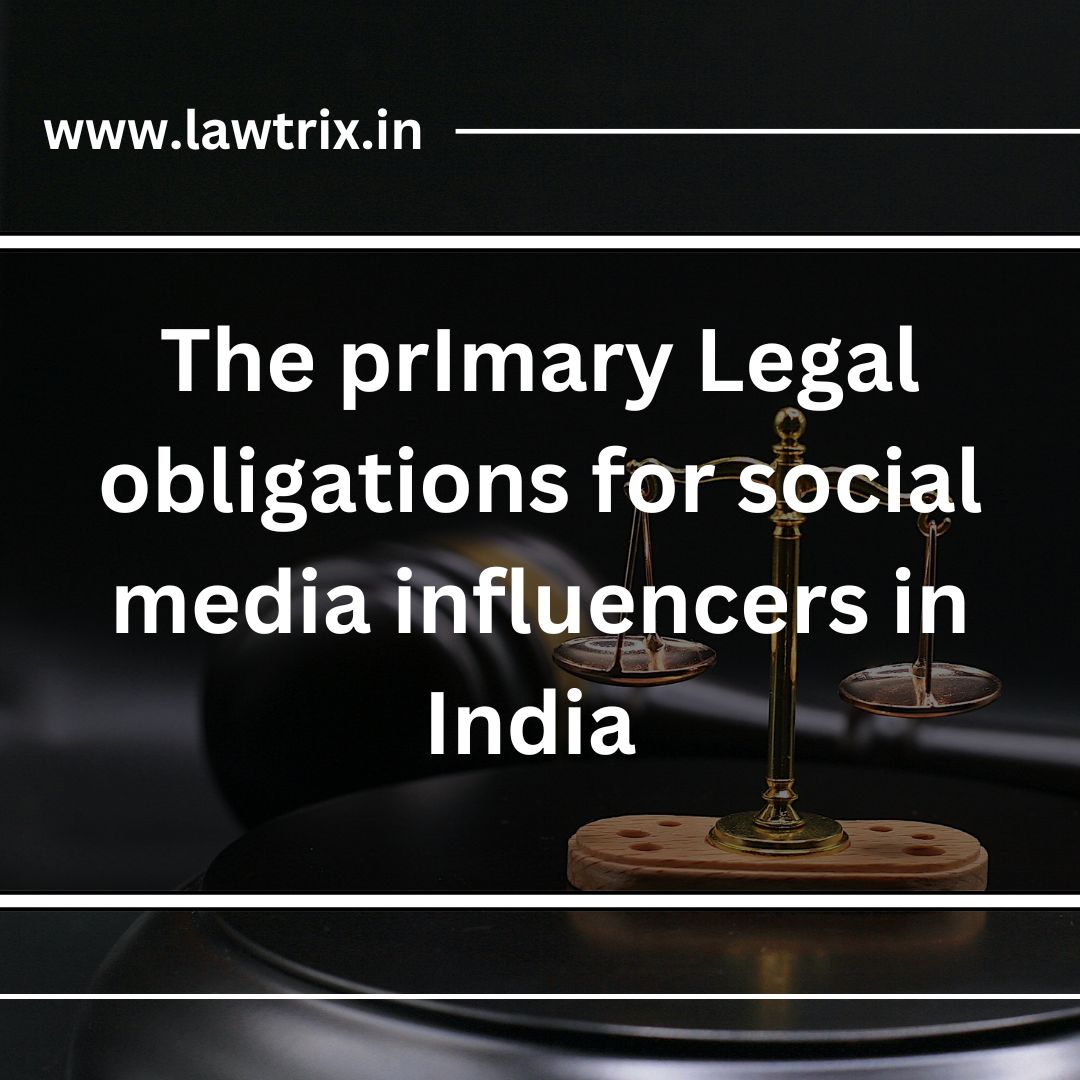The prImary Legal obligations for social media influencers in India
Social media influencers in India are playing an increasingly
significant role in digital marketing, with their endorsements often having a
powerful impact on consumer behavior. As trusted figures with large follower
bases, influencers can shape public opinion and drive brand visibility in
unique ways. However, with this influence comes a responsibility to promote
products and services in a transparent and ethical manner. Recognizing the
potential risks associated with undisclosed endorsements and misleading claims,
the Indian government and regulatory bodies have introduced specific guidelines
and legal requirements to govern influencer marketing.
These regulations are designed to safeguard consumer
interests, prevent deceptive practices, and promote fair advertising standards
across digital platforms. Key bodies such as the Central Consumer Protection
Authority (CCPA), Advertising Standards Council of India (ASCI), and various taxation
and intellectual property laws collectively form a regulatory framework for
influencers. These regulations cover everything from mandatory disclosures of
paid partnerships to the need for intellectual property compliance and
adherence to privacy laws.
Understanding and adhering to these guidelines is essential
for influencers to build trust with their audiences while also avoiding
potential legal repercussions. The following overview outlines the primary
legal obligations for social media influencers in India, covering areas such as
disclosure requirements, consumer protection, privacy, intellectual property,
and taxation.
1. Disclosure and Transparency
- CCPA
Disclosure Guidelines:
Influencers must disclose any form of compensation, including money,
gifts, or discounts, for promotional content. Disclosures should be clear,
prominent, and in the same language as the content, using hashtags like
#Ad, #Sponsored, or #Promotion.
- Platform-Specific
Standards:
Influencers should follow each platform’s specific disclosure rules, such
as Instagram’s paid partnership tag or YouTube’s sponsored content
notifications.
2. Advertising Standards Council of
India (ASCI) Guidelines
- ASCI
Best Practices:
Influencers are expected to make truthful, substantiated claims. For
example, health or beauty claims must be supported by evidence.
- Disclosure
Timing:
In video content, disclosures should be visible for at least 3 seconds or
throughout the video if live-streamed.
3. Consumer Protection Act, 2019
- Liability
for Misleading Advertising: Influencers can be held accountable if they knowingly
promote false claims or omit critical information, with penalties
including fines or potential bans.
4. Intellectual Property and
Copyright
- Compliance
with Copyright Laws:
Influencers must use licensed music, images, or videos, and should clarify
ownership and usage rights in any brand agreements.
5. Privacy and Data Protection
- Handling
Consumer Data:
Influencers should comply with the Information Technology Act when managing
or sharing personal information gathered from followers.
6. Taxation and Income Reporting
- Income
Tax Obligations:
Income from brand partnerships is taxable, and influencers must report it
to the Income Tax Department.
- GST
Compliance:
Influencers earning over a certain threshold must register for GST, issue
invoices, and file returns.
7. Prohibited Content
- Restrictions
on Specific Products:
Influencers should avoid promoting certain products, such as unauthorized
drugs, tobacco, or alcohol, in line with relevant advertising laws.
8. Contests, Giveaways, and
Sweepstakes
- Transparency
in Contests:
Influencers must clearly disclose terms and eligibility for any social
media giveaways and comply with the Indian Contract Act, 1872. Prizes may
be subject to income tax.
9. Penalties for Non-Compliance
- CCPA
and ASCI Enforcement:
Failure to comply with advertising laws can lead to fines, restrictions,
or defamation lawsuits if statements are harmful to others.
10. Best Practices for Compliance
- Record-Keeping: Influencers should keep all
records of brand agreements and disclosures.
- Regular
Disclosure Updates:
Compliance with evolving disclosure standards is essential.
- Consumer
Rights Awareness:
Encouraging followers to understand their rights to returns or complaints
can enhance credibility.
These
guidelines help influencers in India maintain transparency, protect consumers,
and ensure legal compliance in their promotional activities.


